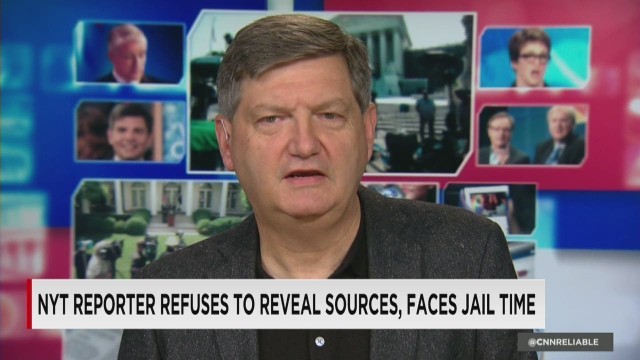
For a long time, a wide spectrum of establishment media insisted that Bernie Sanders couldn’t win. Now they’re sounding the alarm that he might. And, just in case you haven’t gotten the media message yet — Sanders is “angry,” kind of like Donald Trump.
Elite media often blur distinctions between right-wing populism and progressive populism, as though there’s not much difference between appealing to xenophobia and racism and appealing to those wanting social justice and humanistic solidarity. In the real world, the differences are vast.
Donald Trump is to Bernie Sanders as Archie Bunker is to Jon Stewart. Among regular New York Times columnists, aversion to Bernie Sanders has become more pronounced at both ends of the newspaper’s ideological spectrum. Republican Party aficionado David Brooks (whose idea of a good political time is Marco Rubio) warned that his current nightmare for the nation is in triplicate: President Trump, President Cruz, or President Sanders. For Brooks, all three contenders appear equally awful; Trump is “one of the most loathed men in American public life,” while “America has never elected a candidate maximally extreme from the political center, the way Sanders and Cruz are.”
That “political center” of power sustains huge income inequality, perpetual war, scant action on climate change, and reflexive support for the latest escalation of the nuclear arms race.
Meanwhile, liberal Times columnist Paul Krugman (whose idea of a good political time is Hillary Clinton) keeps propounding a kind of trickle-down theory of political power, in which “happy dreams” must yield to “hard thinking.”
An excellent rejoinder has come from former Labor Secretary Robert Reich. “Krugman doesn’t get it,” Reich wrote. “I’ve been in and around Washington for almost 50 years, and I’ve learned that real change happens only when a substantial share of the American public is mobilized, organized, energized, and determined to make it happen.”
Reich added: “Political ‘pragmatism’ may require accepting ‘half loaves’ — but the full loaf has to be large and bold enough in the first place to make the half loaf meaningful. That’s why the movement must aim high — toward a single-payer universal health, free public higher education, and busting up the biggest banks, for example.”
But for mainline media, exploring such substance is lower in priority than facile labeling and horseracing and riffing on how Bernie Sanders sounds angry.
On “Morning Edition,” NPR political reporter Mara Liasson told listeners that “Bernie Sanders’ angry tirades against Wall Street have found a receptive audience.” Meanwhile, without anger or tirades, “Hillary Clinton often talks about the fears and insecurities of ordinary voters.”
The momentum of the Sanders campaign will soon provoke a lot more corporate media attacks along the lines of a Chicago Tribune editorial that stated that the nomination of Trump, Cruz, or Sanders “could be politically disastrous,” adding that “wise heads in both parties are verging on panic.”
The Tribune editorial warned that “as a self-declared democratic socialist,” Sanders “brandishes a label that, a Gallup poll found, would make him unacceptable to nearly half the public.”
A strong critique of such commentaries has come from the media watch group FAIR, where Jim Naureckas pointed out that “voters would not be asked to vote for ‘a socialist’ — they’d be asked to vote for Bernie Sanders. And while pollsters don’t include Sanders in general election matchups as often as they do Clinton, they have asked how the Vermont senator would do against various Republicans, and he generally does pretty well.”
In mass media, the conventional sensibilities of pundits like Brooks and Krugman, reporters like Liasson, and outlets like the Chicago Tribune routinely get the first and last words. In this column, the last ones are from Naureckas: “When pollsters match Sanders against the four top-polling Republican hopefuls, on average he does better than Clinton does against each of them.
“Actually,” Naureckas, concluded, “the elements of Sanders’ platform that elite media are most likely to associate with ‘socialism’ — things like universal, publicly funded healthcare and eliminating tuition at public colleges — are quite popular with the public, and go a long way to explain his favorable poll numbers.”
Norman Solomon is the author of the new book War Made Easy: How Presidents and Pundits Keep Spinning Us to Death.
